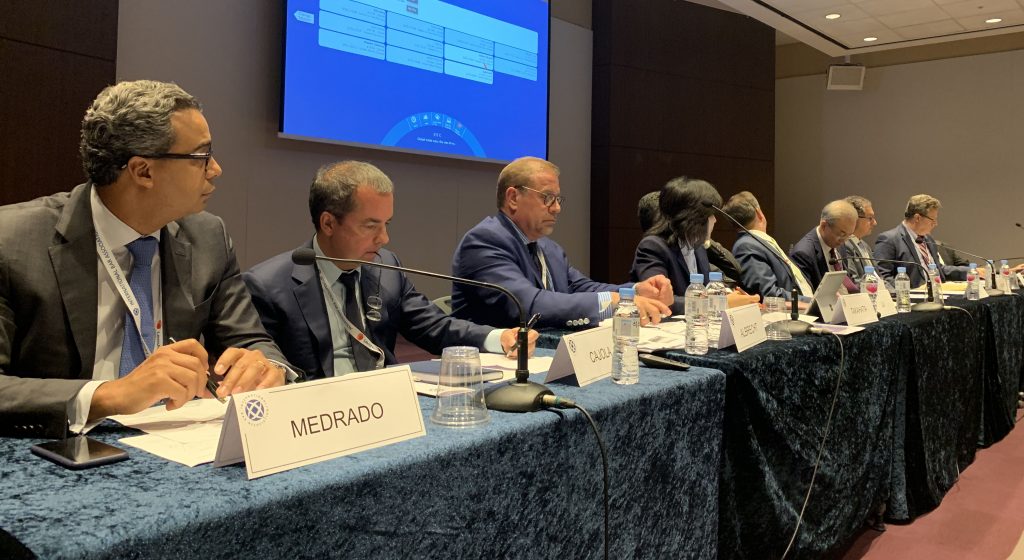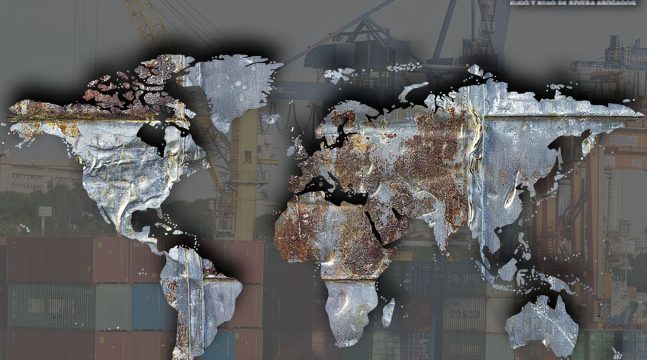IBA 2019 – International Trade Committee

USA vs China, Japan Vs Korea, USA vs Mexico, China Vs Australia, all against all and no one against anyone. It would be simplistic to believe that the trade wars are only due to the “Trump phenomenon,” because the reality is that there are more complex factors that explain them.
Trade wars are actions taken by countries on legal bases and in some cases illegalate abusing privileged positions to dismiss market practices.
With the fall of the Soviet Union in the 1990s there was only one superpower left in the world order, which while it could, unilaterally set the planet’s trade agenda, but nearly thirty years later new players emerged with other rules.
The Chinese opened their economy in the late 1970s. In the early 1980s, they took steps to end their isolation by bringing entry to the IMF, the World Bank and a campaign to rejoin the General Agreement on Tariffs and Trade (GATT), from which it had withdrawn in 1950.
China’s accession to the WTO in 2001 could have been read as the incorporation of the rebel player into the board rules, but few foresaw the consequences of incorporating them under the label of “developing country” and all the benefits it brought Get.
President Trump has argued that the treaties signed by the United States are abusive to the American economy and therefore should be revised. One of the reasons invoked by the Trump administration for the renegotiation of NAFTA was that some Asian companies settled and manufactured from Mexico to import to the United States with the benefits of the treaty as if they were products Mexican.
For their part, the Chinese attribute the trade conflict to the dollar and the world’s grip on the currency for international operations. The Chinese do not see the conflict as a trade war but industry and openly state that they do not want to fight, but complain that the United States wants to erase all progress in recent years and be against “developing countries”, while the Americans are constantly reversing by accusing China of intellectual property violations and imposing tariffs on its products.
The Japanese claim to be in the midst of the trade conflict and be the hardest hit, as much of their operations relied on sending raw materials to China for processing and from there exporting the final product to the world, but given the situation their products remain labeled with Chinese origin and subject to trade tariffs and restrictions and moving production back to Japan is as expensive as the same situation they now face. Australians are also not exempt and do not hide their concern to be partners in the United States, but at the same time geography and their needs tie them to Chinese trade.
As long as the WTO seems to be overtaken by the situation, the United States continues to ask the Chinese for changes and considerations. Asians refuse to give in and seek sympathy and allies in Latin American countries by inviting them to join the “Belt & Road Initiative”, which has already joined El Salvador, Costa Rica and Panama. China’s “belt and road” initiative has echoed in the Caribbean and much of Latin America, but neither Mexico nor Brazil has signed at least one memorandum of understanding with China and the Amazonians do not hide their fear that accession could cause U.S. tenasiate imposed sanctions on him.
Just as the U.S. has the right to seek a return on investment to their country, the Chinese also have the right to preserve the production chain in their territory.
The Chinese cite as a plea not to give in, the pressure the U.S. exerted on Mexico to trade NAFTA for the T-MEC, but the Americans cite the same example to be placed as open to new negotiations.
Each part has its own version of what is happening, but the truth is that this is hardly the beginning of an epic battle, because beyond the imposition of tariffs, what is actually at stake is the implementation of political ideology and practice that will prevail for the rest of the century.
The Trump trend is to leave multilateralism and opt for one-on-one agreements between nations and recently from the stand of the United Nations, has openly expressed that the future is not of globalization but of patriots and it seems that the Chinese give reason when we take into account that they have signed Bilateral Investment Treaties with Belize, Costa Rica, Honduras and Mexico itself. The Bilateral Investment Treaties are a low-level agreement that essentially codifies the mechanisms for investing in each other’s countries and protects the rights of each’s citizens by doing so.
We will have to get used to the tension and expect changes in the costs and quality of the products.
The positive scenario is enough to think of small moderate packages of solutions, while the pessimistic scenario is that the shocks between economies will continue and the end consumer will end up being the most harmed.
This is a competition that will have a winner over the years, but while the Us seems to close to the world, China openly invites you to make money with them and it is very difficult not to be seduced in the face of the opportunity of a market of 1.3 billion consumers.
The coincidences between nations are that the situation is a disaster, that political purposes are pursued disguised as commercials, conventional systems and institutions reel and all urge solutions, while awaiting the arrival of a new tweet that make it worse.


